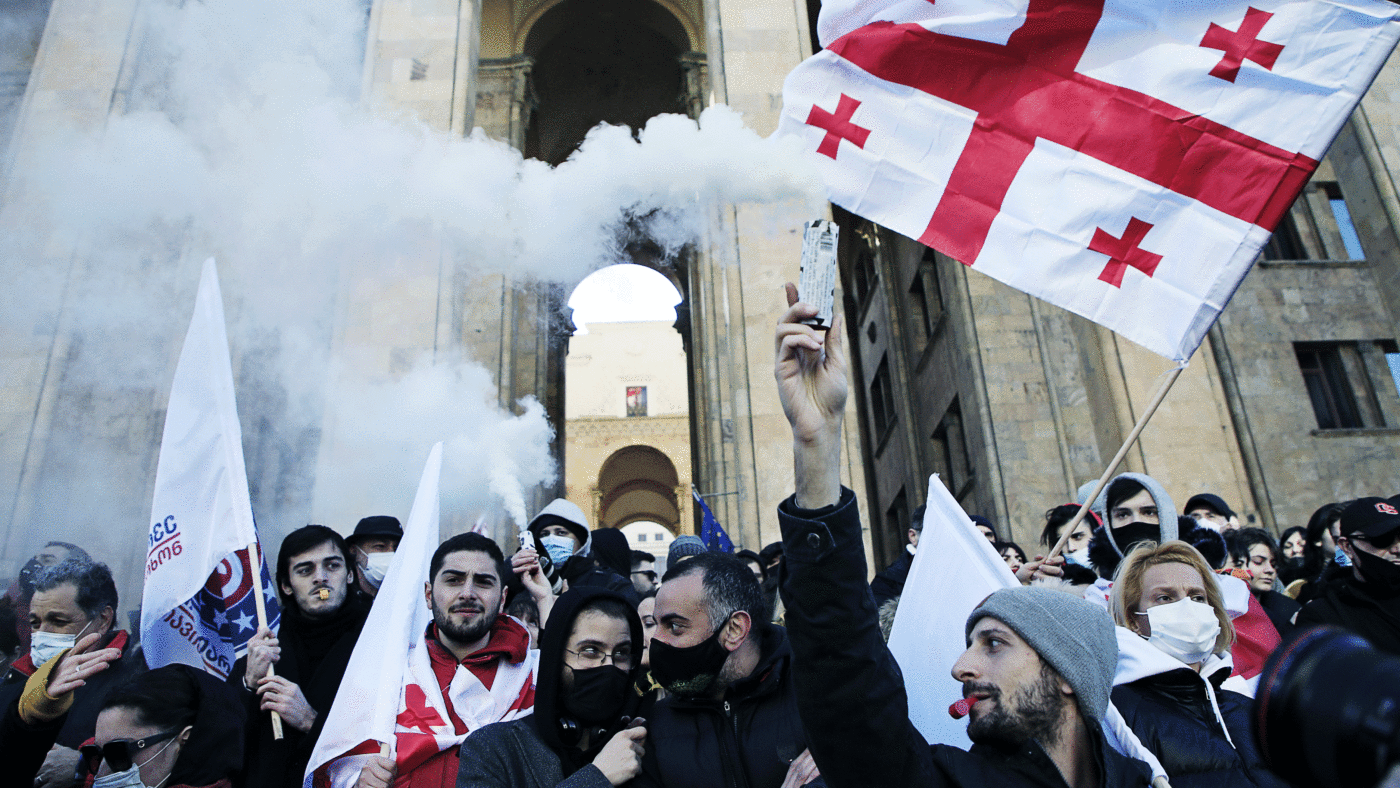Georgia is the darling of the west in the Caucasus, but events in the last few days have brought into sharp relief fundamental issues that have been simmering beneath the surface for some time now. The sudden resignation of the Prime Minister, his replacement by Defence Minister Irakli Garibashvili, and the subsequent arrest of the opposition leader Nika Melia suggest that all is not well with Europe’s Caucasian ally. The latest events follow a tumultuous election late last year, after which the opposition as one refused to take up their seats in parliament.
Georgia has changed – slowly, steadily, and almost unnoticed by most. The country with 3.7 million inhabitants, and a GDP lower than some multinationals, seldom reaches the headlines these days. In fact, it hasn’t registered much public interest at all since Russia’s annexation of the South Ossetia and Abkhazia regions back in 2008, a time I remember well from my posting as Permanent Representative to the UN. But its key location and its remarkable economic and political development in the past 15 years have made it increasingly important for leaders in the west.
Georgia is now an official NATO aspirant and since 2016 has also had an association agreement with the EU, the first step towards potential membership of the Union. Since the mid-2000s it has grown from one of the weakest, most corrupt post-Soviet states to the poster child of the region. Ranked 7th in Ease of Doing Business globally by the World Bank and with the only officially free media in the Caucasus, it is an attractive partner. It is of strategic importance on the border to Russia too, while its location squarely between east and west makes it a key trade hub.
But the last few years have seen this growth stall. Most statistical measures see Georgian GDP plateauing or falling since around 2017 at least, with Foreign Direct Investment dropping especially dramatically. The reasons are all too clear: a decline in democracy and rule of law, and the rapprochement of the government, in power since 2012, with Russia and China, which raises concerns about undue external influence.
It is a concern shared by many Georgians. Demonstrations throughout 2019 over the perceived closeness of some ruling party MPs to Russia, and the government’s failure to implement electoral reform, were supressed by police. The weeks prior to the election last November, which returned Prime Minister Giorgi Gakharia to power, also saw numerous local reports of voter intimidation and bribery by both security forces and Georgian Dream party members. International observers noted the blurred line between party and state, ranging from the electoral commission to state security, with a lack of overdue campaign finance reform moreover favouring the larger parties.
Judicial independence is still only ranked 80th by the World Economic Forum. A national survey by the Caucasus Research Resource Centers shows that only 4% fully trust the courts and only 18% believe the courts treat everyone equally. It’s a key sticking point for the EU, which, otherwise full of praise for Georgia, once again strongly emphasised the need for judicial reform in its most recent assessment of the Association Agreement in September. In particular, it calls for the limiting of political involvement in judicial appointments and refraining from pursuing any “politically-motivated judicial cases”.
This is mainly an issue with the treatment of opposition figures and local business rivals, but has spread into international investment projects, most notably in recent years the Anaklia Deep Sea Port and Caucasus Online. The main Georgian investor in the Anaklia project, Mamuka Khazaradze, was prosecuted in a case seen by many as the weaponization of the Georgian judiciary and led to the eventual collapse of the project. In a similar vein, Caucasus Online recently had a government administrator imposed upon it after it became part of a project to provide a fiber optic broadband network between Europe and Central Asia, which would reduce dependence on Russia.
While the opposition continues to call for new elections, it looks like the government will remain in control. Whether it will be able to return to a more progressive path remains to be seen. The new administration in the US and the EU have an opportunity, even a responsibility, to renew their engagement with the region. Georgia has come far in the past fifteen years and it should not be left to regress. Creeping Russian influence, lack of faith in the central government, and a failure to reform rule of law still have the potential to undo what has already been achieved.
Amid these tribulations, election victory may well be a poisoned chalice that the opposition parties have been fortunate to avoid. The government certainly has its work cut out for it. But if Georgia is to remain the Caucasus’ leading light and continue on its path towards Europe, it will have to be held to account every step of the way. The attitude of the new US government and the EU towards rule of law and Russian influence will play a decisive part.
Click here to subscribe to our daily briefing – the best pieces from CapX and across the web.
CapX depends on the generosity of its readers. If you value what we do, please consider making a donation.


